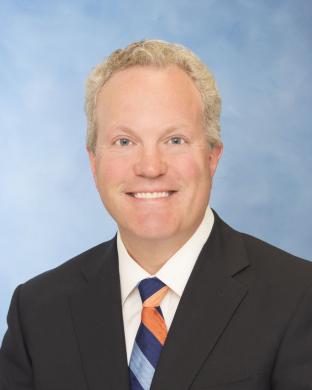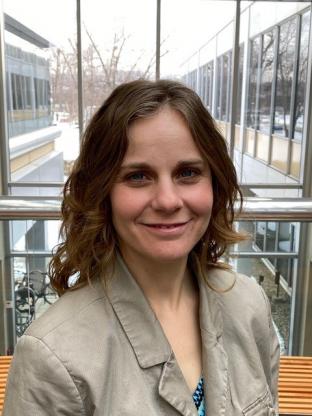Resident Research Methods Course
All residents attend the Urology Research Methods Course taught by Dr. Aruna V. Sarma. This course entails 2 didactic sessions each held once a year.
Session 1: Intro to Epidemiology
Session 2: Intro to Statistics
Annual Resident Research Symposium
Held in the spring of each year, the Urology Resident Research Symposium provides a venue for each resident to present a completed research project. Two established research scientists from outside the Department are invited to deliver keynote lectures and to serve as judges. The winner is awarded the Julian Wan, MD Research Excellence Award.
Resident Research Symposium Awards
Program of Education in Basic and Translational Research (ETBR)
The Department of Urology has launched the EBTR program with the goal of educating and assisting young urologic scientists in the translational application of molecular and cellular biology in urological disease. The 4 lectures scheduled for early next year are a major part of this program; however, another objective will be to assist urology trainees and faculty in the preparation of competitive grant applications, with a specific focus on NIH and DOD funding. The EBTR will coordinate with the Residency Program and Health Services Research and Career Development Program to operate efficiently.
Mark Day, PhD will be overseeing the EBTR with the anticipation of enhancing academic productivity and visibility and scientific interaction with other faculty and programs in translational and clinical research within the University of Michigan.
Dr. Day received his PhD in Molecular and Cellular Biology from Washington University School of Medicine, where he remained on the urology faculty for 3 years. He has been on the Urology faculty at Michigan for the last 26 years. He is a member of the Graduate Cancer Biology Program and the Tumor Biology Program at Michigan and within the Rogel Comprehensive Cancer Center. Over the last 3 decades he has been awarded grants from, and reviewed for numerous federal, state and international scientific institutions including the National Institutes of Health, National Science Foundation, American Cancer Society and Department of Defense. He has also trained many graduate students, undergraduate students, medical students, post-doctoral fellows and have mentored clinical residents, fellows and junior faculty in Urology, Medical Oncology and Pathology. He is eager to share these many years of experience with you; however, he looks forward to learning from you as well.
Specific objectives:
- Delivering lectures to residents and oncology fellows on scientific research techniques used in tumor biology/molecular biology/cellular biology and their relevance to urological disease.
- Hosting journal clubs focused on basic/translational sciences in urology or other areas of clinical application.
- Coordinating a research proposal boot camp for Urology faculty who are within a year of submitting a large grant application (R01 or equivalent). This will focus on highly developed research projects and will consist of multiple meetings to discuss the step-wise aspects of writing and submitting a competitive application. The goal of this one-year will be to have a completed application at the end of year (or less) to be submitted.
- Facilitating a faculty/fellow workshop on how to be an effective grant reviewer.
- Deliver a lecture on the extremely important area of research ethics and integrity.
- Serving on mentorship teams for individual residents/fellows and junior faculty who are pursuing basic science/translational research. This could also include residents involved with HSR or clinical research.
- The EBRT will also advise on the preparation of scientific manuscripts and presentations for all trainees and junior faculty, if so desired.
The Urology Incubator Lab
- Purpose: To facilitate the performance of technical scientific work as proposed by our residents who are in clinical training. All projects include at least one faculty mentor (Urology or non-Urology). The results of these studies can serve as a springboard to future resident projects. The typical timeline for the studies is 12 months or less.
- Who: PGY-2 urology residents and higher are eligible to apply with a faculty mentor. Fellows are not eligible.
- How: Residents with faculty submit a 1 page Aims Page/Research plan with a separate budget
- Budget: projects up to $10k will be considered eligible for funding
- Timeline: project durations of 3, 6 and 12 months will be considered
- Deadline: none; continuous submission.
- Translational/correlative science and health services research projects are highly encouraged.
- What could the money fund? Examples- correlative science: construction/staining a tissue microarray, simple cell line studies—our translational labs will perform these studies; HSR: data acquisition, analytic support, programming help.
- Parth Patel (PGY1) - Zoning Zones: Using Spatial Whole Transcriptomic Profiling to Characterize Peripheral Zone vs. Transition Zone Prostate Cancer in African American Men
- Kristian Black (PGY2) - Atrial Natriuretic Peptide as a Urinary Screening Biomarker for Obstructive Sleep Apnea in Patients with LUTS
- Danny Triner (PGY2) - Spatial Transcriptomic Profiling of Clear Cell Renal Cell Carcinoma
- Cathy Nam (PGY3) - Dissecting The Role of Stress-Induced Granules in Male Infertility by Spatially Resolved Single-Cell Analysis
- Alex Zhu (PGY3) - What is the Optimal Technique for Hydrodistension? First Prospective Study Evaluating the Effect of Pressure, Duration and Number of Hydrodistensions on Patients with Interstitial Cystitis
Program Leads

J. Quentin Clemens, MD

Aruna Sarma, PhD, MHA


